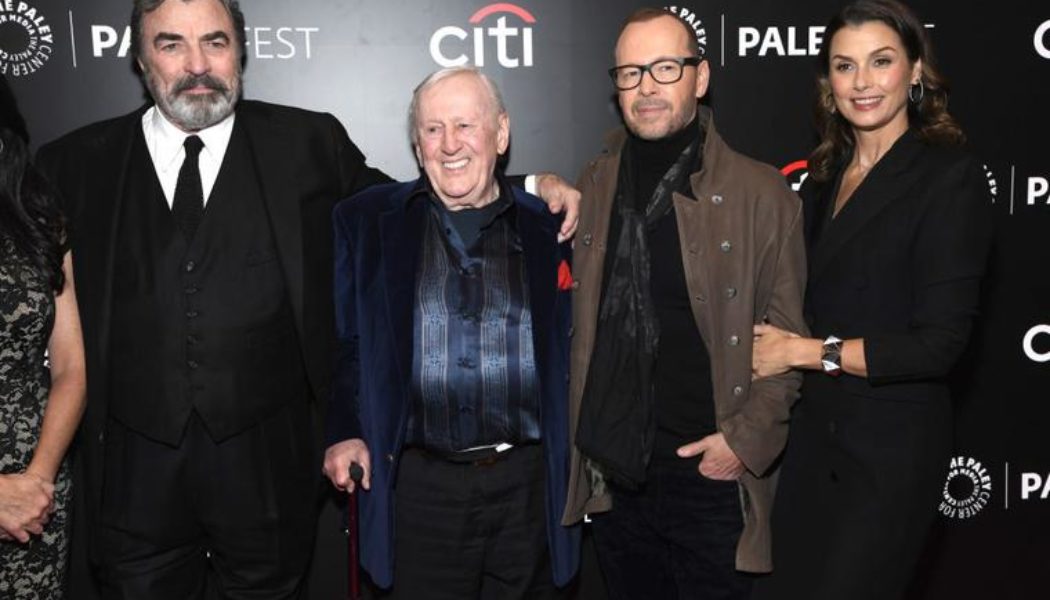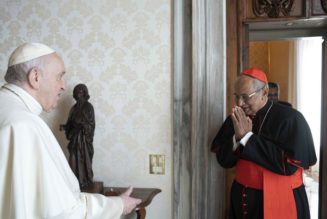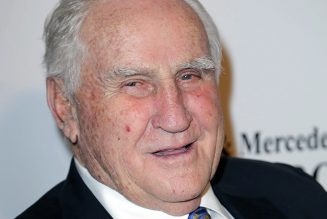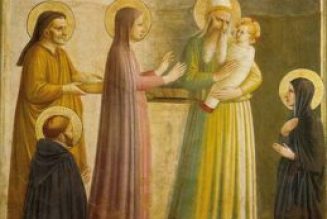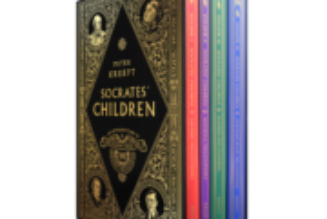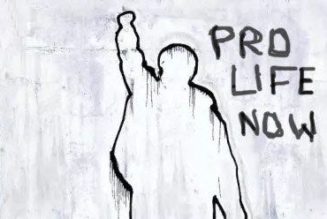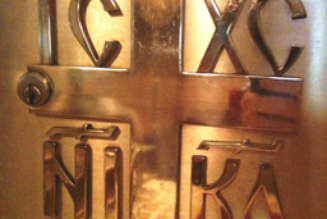
The most Catholic show on network television has its finale tonight, 14 years and 283 episodes after its premiere in September 2010. Blue Bloods has had an extraordinary run in a time when network television has been hemorrhaging audiences.
Blue Bloods is not only a police drama. It’s a family drama about a police family. Tom Selleck stars as Francis (Frank) Xavier Reagan, the Irish Catholic police commissioner of New York City. Widowed, he lives with his widower father, Henry Reagan, who also served as the NYPD commissioner, now retired. Frank has three sons, all New York policemen, though corrupt cops killed the eldest before the series begins. His daughter is an assistant district attorney in Manhattan. Law enforcement is the family business.
There have been other family crime shows — either highlighting the cops or the robbers. But Blue Bloods is a show about a practicing Catholic family. They go to Mass every Sunday and then have family dinner together. Every episode includes the Sunday dinner scene, the most distinctive and popular part of the show. The Reagans don’t begin until they have said grace before meals, making them the only network TV family shown praying regularly.
There are plenty of other Catholic aspects to the show. Frank goes to confession and regularly consults with the archbishop of New York. Key scenes are often set in churches. There have been the obligatory storylines about the seal of the confessional, including one of the best dialogues about confession ever filmed, prompted by Frank asking a priest to help him find a child who has been kidnapped.
The patriarch of the clan, Henry Reagan, upbraids his son for trying to get a priest to break the seal, no matter the emergency.
“You did a shameful thing,” Henry tells Frank, one NYPD commissioner to another. “And you know it.”
“Put yourself in Father Phil’s shoes,” Henry continues. “He’s earned his right to protect the seal.”
“How?” Frank asks.
“You confess your sins. You say your three Hail Marys. You drop some change in the poor box on your way out. But the priest, he’s left with your sins. He absorbs your sins. He prays for you.”
“As he took a vow to do,” says Frank.
“Yes, and he has nothing but smiles and good cheer for the cheating husband and his innocent family when he sees them at church after Mass on Sunday,” Henry explains. “This costs a priest — times all the sinners, times all the years.”
For reasons like that, Bill Donohue of the Catholic Civil Rights League — usually in the umbrage-taking business — wrote in 2011, when the show was returned for a second season, that it was “one the few TV shows on the broadcast networks to treat Catholicism fairly” and that “the family-oriented program often casts a good light on Catholicism. Glad the Catholic-friendly show is being renewed.”
Blue Bloods portrays a typical Catholic family as it is, not an idealized version. Actually, given that the vast majority of Catholics do not attend Sunday Mass, it is a bit of an idealized version. Otherwise, the family struggles with all the problems the culture throws up. Daughter Erin is divorced. Danny, the elder surviving son, struggles with faith in the face of tragedy. Jamie, the other son, debates about whether to get married in the Church (he eventually does).
Along the way, there is a myriad of struggles over how to do the right thing when you expend extensive energy trying to catch people doing the wrong thing. Blue Bloods is more about how policing is done properly than it is about catching the perps. Investigative techniques, legal procedures, political priorities, media passions, racial tensions, excessive force, corruption — all these are considered in the light of moral character, and the obligations of honor, duty, religion and faith.
There have been occasions when the umbrage-takers have taken umbrage. In 2014, one storyline had Frank handling the case of a gay cop, and confessing that he thought the Church was “behind the times” on matters homosexual, even if he himself “liked the Latin Mass.” Donohue was on the case, “wondering whether CBS is turning on its audience.”
“We were bombarded with complaints,” said Donohue. “The audience for Blue Bloods has been carefully cultivated, so the price tag for alienating its base is high. Time will tell.”
Time did. Blue Bloods stayed on the air for another 10 years.
The Catholicity of the Reagan family has been a needed corrective to an ecclesial culture that too often elevates the moral law above the worship of God, as if the Fifth and Sixth Commandments were more important than the Third. The police know a lot about violations of the Fifth and Sixth, so observing the Third — Keep Holy the Lord’s Day — is significant.
The Reagans, aside from their unusually faithful worship, are reflective of U.S. Catholics as a whole, who by large margins do think that Catholic teaching on homosexuality is outdated. That doesn’t make the teaching wrong, just unpopular. It does mean that a family that disagrees is part of the American Catholic landscape.
Danny Reagan is played by Donnie Wahlberg, perhaps not coincidentally from a family famously Catholic in a complicated fashion. Mark Wahlberg’s career has ranged from real-life racist violence and onscreen obscenity to the Hallow prayer app. Jim Wahlberg just made a film on the Eucharist, Jesus Thirsts. Donnie himself has a public life sometimes at odds with Catholic teaching. The TV Reagans are not nearly as wild as the Wahlbergs have been in real life, but the message is similar: Catholic family life is complicated.
Reagan family life is unusual in one respect, especially for network television. The principal characters, Henry, Frank and Danny are all widower fathers. It is a show unusually about men, about fatherhood, about good men striving to live authentic virile virtue. In the early seasons, Frank was given possible love interests, but as the series matured, the show moved in the opposite direction. Married Danny joined his widowed father and grandfather as his wife was murdered.
In a 2020 phone interview with executive producer and writer Kevin Wade — a practicing Catholic by his own admission — I asked about the focus on men and manly character. Was that an intentional focus at a time when the crisis in masculinity has become a cultural, political and economic concern?
Wade demurred. Rather, he said that there was “power in the storytelling about people who are so dedicated to their public service that their private lives suffer. Having talked to some priests about the show, that comes under sacrifice.”
Perhaps that is why Frank Reagan has a long friendship with New York’s archbishop, with whom he shares a remarkable bond. The police commissioner largely deals with subordinates and rivals; the archbishop is something of a peer. In the final season, they jointly go incognito into the streets — as did Theodore Roosevelt, the first New York police commissioner — worrying that as leaders they have lost credibility with their respective flocks.
Some of the most powerful episodes have been about fatherhood, faith and forgiveness. Frank, having had to deal with the murder of his son by corrupt cops in his own department, knows about loss. He goes to the bedside of a dying mobster to apologize for his own role in the death of his wife and grandson in a sting gone bad. And having made his act of contrition, Frank invites the mobster to make his confession — not to Frank but to a priest he has brought along to prepare the crime boss for eternity.
Another rival is an activist Black pastor, stirring up racial animosity against the commissioner. The pastor’s son gets murdered, and Frank offers the sympathy of a father who knows what it is to suffer at the hands of one’s own. Reconciliation comes when the pastor invites Frank to offer a eulogy at the funeral.
What will Frank say? What he hoped to say at his own son’s funeral, but lacked the strength at the time. He quotes Aeschylus in Agamemnon:
“And even in our sleep, pain that cannot forget falls drop by drop upon the heart, and in our own despair, against our will, comes wisdom through the awful grace of God.”
For 14 years on Friday nights, the Reagans endured the pains of policing with the help of God’s grace. A community of viewers joined them, amid cultural crises of faith, fatherhood and fraternity, to join one Catholic family who found strength and solace every Sunday in the house of the Lord and around the dinner table.
